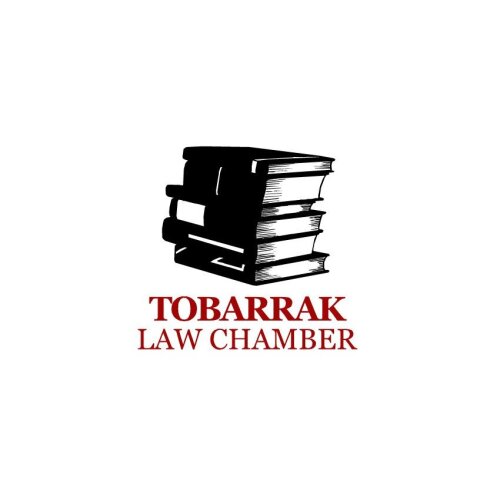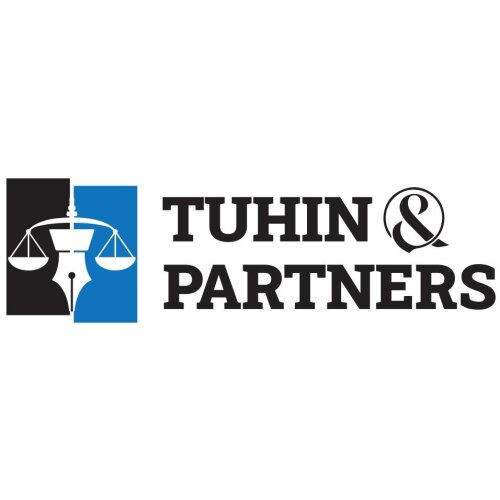Best Data Center & Digital Infrastructure Lawyers in Dhaka
Share your needs with us, get contacted by law firms.
Free. Takes 2 min.
List of the best lawyers in Dhaka, Bangladesh
About Data Center & Digital Infrastructure Law in Dhaka, Bangladesh
Data centers and digital infrastructure are the backbone of Bangladesh’s rapidly growing digital economy, supporting services like cloud computing, data storage, telecommunications, financial transactions, and government digitization. Dhaka, as the nation’s capital and its central business hub, is witnessing a surge in digital infrastructure development, driven by both local initiatives and foreign investments. A robust legal framework is developing to address the unique challenges of data privacy, commercial agreements, cybersecurity, licensing, and foreign collaboration, ensuring data centers and digital infrastructure providers comply with national and international laws while fostering innovation and growth.
Why You May Need a Lawyer
Legal matters related to data centers and digital infrastructure can be complex and highly technical. Here are some common situations where seeking legal help becomes crucial:
- Drafting and negotiating service level agreements (SLAs) and contracts between data center providers and clients.
- Navigating regulatory requirements for establishing or operating a data center in Dhaka, including permits and licenses.
- Addressing issues of data privacy, personal data protection, and cross-border data transfers.
- Dealing with disputes involving service outages, security breaches, or liability claims.
- Assisting foreign investors in compliance with local ownership, taxation, and technology transfer regulations.
- Facilitating partnerships, mergers, or acquisitions in the fast-evolving digital infrastructure space.
- Ensuring cybersecurity measures are compliant with national laws and industry best practices.
- Handling employment matters related to high-skill technical staff and intellectual property (IP) concerns.
Local Laws Overview
Data centers and digital infrastructure in Dhaka are governed by several key legal and regulatory frameworks. Notable among these are:
- Information and Communication Technology Act, 2006 (amendments up to date): Sets the ground rules for information security, digital signatures, and legal recognition of electronic records.
- Digital Security Act, 2018: Addresses cybercrimes, personal data protection, and digital rights. It introduces penalties for data breaches and cyberattacks.
- Telecommunications Act, 2001 and BTRC Guidelines: The Bangladesh Telecommunication Regulatory Commission oversees data transmission, licensing of service providers, and infrastructure sharing.
- Data Protection Policy Initiatives: The Government is working towards comprehensive data protection laws to align with international standards, which is crucial for cloud service providers and cross-border operations.
- Foreign Investment and Tax Regulations: Bringing in foreign capital or partnering with international firms triggers compliance with Bangladesh Investment Development Authority (BIDA) and National Board of Revenue (NBR) requirements.
Staying current with regulatory updates is critical as laws are continuously evolving to keep pace with technological advances and international practices.
Frequently Asked Questions
What licenses do I need to operate a data center in Dhaka?
Operating a data center typically requires registration with the Bangladesh Telecommunication Regulatory Commission, relevant environmental and infrastructure clearances, and compliance with ICT and Digital Security laws.
Are there specific data privacy laws in Bangladesh?
While a dedicated data protection law is in progress, aspects of data privacy are currently governed by the Digital Security Act and provisions of the ICT Act, focusing on personal data protection and security obligations for data handlers.
Can I store foreign clients’ data in a Bangladeshi data center?
Yes, but you must comply with local regulations as well as any overseas jurisdiction requirements regarding data localization or cross-border transfers, especially for sensitive or personal data.
What are the security requirements for a data center in Dhaka?
Compliance with the Digital Security Act is key. This means ensuring robust cybersecurity protocols, data encryption, and backup systems. Industry standards such as ISO certifications may also be recommended.
How are cloud services regulated in Bangladesh?
Cloud services fall under the broader telecommunications and ICT framework, so providers must ensure regulatory compliance in terms of data protection, consumer rights, and security standards.
What legal risks are involved in third-party data center service agreements?
Risks include unclear service levels or uptime guarantees, insufficient liability coverage for data breaches, and lack of dispute resolution mechanisms. Having a well-drafted contract is essential.
Are there restrictions on foreign ownership of digital infrastructure?
Foreign investors can participate in the digital infrastructure sector, but must comply with BIDA regulations and may face certain restrictions or additional approval processes, especially in sensitive sectors.
Who enforces digital infrastructure regulations in Dhaka?
The primary agencies are the Bangladesh Telecommunication Regulatory Commission for licensing and oversight, and the relevant ministries for policy and law enforcement, aided by law enforcement agencies in case of cybercrimes.
What are the penalties for data breaches in Bangladesh?
Penalties under the Digital Security Act can include fines and imprisonment, depending on the severity of the breach and its consequences.
How can legal advice help my business with digital infrastructure projects?
Specialist legal advice helps mitigate risks, ensures regulatory compliance, secures your contracts and liabilities, and provides guidance in dealing with government authorities and dispute resolution.
Additional Resources
Several governmental bodies and organizations can offer further information and assistance:
- Bangladesh Telecommunication Regulatory Commission (BTRC) - Oversees telecommunications and data infrastructure regulation.
- Bangladesh Computer Council (BCC) - Supports ICT infrastructure development and provides technical guidelines.
- Bangladesh Investment Development Authority (BIDA) - Facilitates foreign investment and business incorporation.
- Ministry of Posts, Telecommunications and Information Technology - Forms and implements national policy on ICT and digital infrastructure.
- Relevant ICT and legal professional organizations - These associations can recommend experienced lawyers and consultants in the field.
Next Steps
If you need legal assistance with data center or digital infrastructure matters in Dhaka, Bangladesh, consider taking these steps:
- Identify your exact needs - licensing, contract review, compliance, dispute resolution, or investment support.
- Gather relevant documents, such as business plans, contracts, or government correspondence.
- Reach out to a lawyer specializing in technology law, IT contracts, or digital infrastructure, ideally with local experience in Dhaka.
- Consult with appropriate regulatory authorities, either directly or through your legal counsel, to understand licensing or compliance benchmarks.
- Stay updated on regulatory developments, as this is a fast-evolving area in Bangladesh.
Early legal guidance can prevent future disputes and ensure your technology business operates smoothly and lawfully in Dhaka’s dynamic digital sector.
Lawzana helps you find the best lawyers and law firms in Dhaka through a curated and pre-screened list of qualified legal professionals. Our platform offers rankings and detailed profiles of attorneys and law firms, allowing you to compare based on practice areas, including Data Center & Digital Infrastructure, experience, and client feedback.
Each profile includes a description of the firm's areas of practice, client reviews, team members and partners, year of establishment, spoken languages, office locations, contact information, social media presence, and any published articles or resources. Most firms on our platform speak English and are experienced in both local and international legal matters.
Get a quote from top-rated law firms in Dhaka, Bangladesh — quickly, securely, and without unnecessary hassle.
Disclaimer:
The information provided on this page is for general informational purposes only and does not constitute legal advice. While we strive to ensure the accuracy and relevance of the content, legal information may change over time, and interpretations of the law can vary. You should always consult with a qualified legal professional for advice specific to your situation.
We disclaim all liability for actions taken or not taken based on the content of this page. If you believe any information is incorrect or outdated, please contact us, and we will review and update it where appropriate.










